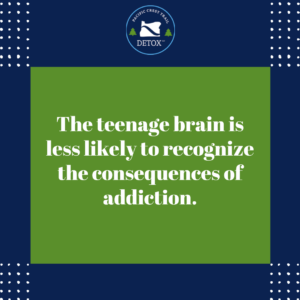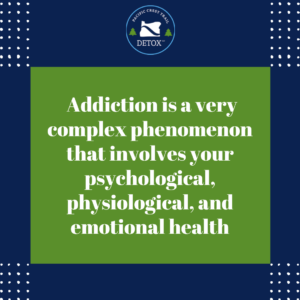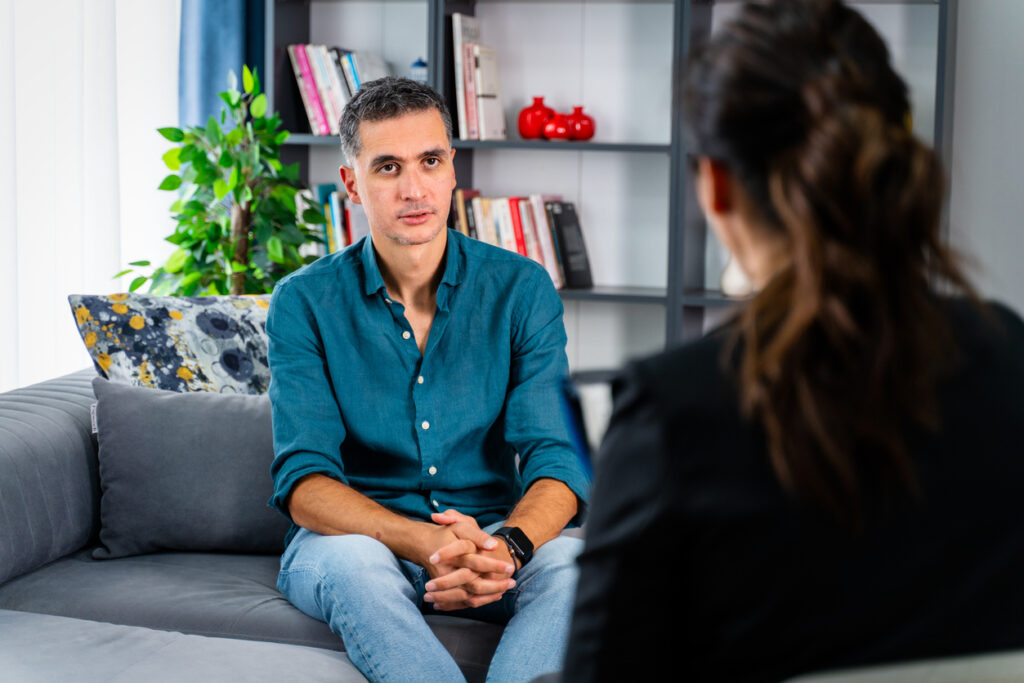Getting stuck in the addiction cycle can be difficult. It often leads to feelings of guilt and diminished self-confidence. Moreover, the impact extends beyond the individual, significantly affecting family and friends as well
Because of this, it’s important to make changes as soon as you notice these issues. But where do you start? Let’s dive into this blog to find out.

The Addiction Cycle
Addiction may feel different for everyone, but here are the four most common phases of the cycle.
Initiation
Do you remember the first time you intentionally drank alcohol or tried smoking? Initiation is when you first encounter the addictive substance and experience the “high” or pleasure from using it.
Whether out of curiosity or peer pressure, you probably felt excited. But this is just the start of the next phase.
Continuation
Continuing drug use can be influenced by various factors like the ease of acquiring the substance, the people you hang out with, and your mental health.
After trying it once, many people become curious and start experimenting with different drugs or alcohol. You may find yourself thinking, “it’s just a sip,” whenever it’s offered. But by this point, your brain’s reward system may have already linked alcohol or drugs with pleasure.
This feeling applies to everyone, but it’s especially noticeable if you begin using substances during your teenage years. This is because the teenage brain is less likely to recognize the consequences of addiction.
Withdrawal
If you found yourself sticking with substance abuse, you may have also built a tolerance against it. What used to be just a few glasses has now turned into a few bottles.
This happens because your body gets used to having it in your system. As a result, you don’t feel the same pleasure as before. This makes you want to consume more.
You might have tried to quit many times and then experienced some symptoms afterward. This indicates that you’ve entered the withdrawal stage.
Withdrawal occurs because your body has become reliant on these substances, and when they’re missing, it disrupts the balance in your body.
Sometimes, these symptoms are so severe that you start thinking it’s better not to quit at all.

Relapse
During relapse, you may find yourself slipping back into old routines of substance use, whether it’s reaching for a drink or using drugs. This regression is what we refer to as relapse.
At this stage, you’ll likely withdraw from social activities or feel more anxious than usual or you might find yourself fantasizing about alcohol or craving a cigarette.
From here on, the cycle typically continues until you decide to be sober again.
Strategies For Breaking The Cycle
Breaking the cycle is just as tough as being in it. But, there are some strategies you could try to achieve recovery. The two most important ones are listed below.
Identifying Triggers
Identifying what triggers your desire to use substances is important for reducing the risk of relapse. Additionally, understanding these triggers and how to stay away from them helps you find better ways to deal with your withdrawal symptoms.
List down the specific people, places, situations, and emotions that make you crave these substances. For example, you may want to avoid the group of friends you used to drink with. For triggering emotions, explore recovery techniques such as meditation, exercise, and artistic hobbies with a professional therapist or trusted loved ones.
Setting Realistic Goals And Expectations
During addiction recovery, it’s important to aim for progress in a safe, healthy, and smart way. When your goals and expectations are realistic and achievable, they can boost your motivation.
For example, committing to a 15-minute walk twice a week in the morning is an attainable goal. Knowing you can do it encourages you to give it a try. And remember to celebrate whenever you reach one of your goals!

Seeking Professional Help
If you want to get out of the addiction cycle, you need to get professional help. It may take some time to get used to the idea, but here are some of the most common treatment options to consider:
- Addiction treatment programs. These are intensive plans that address the underlying factors of your addiction, teach you recovery techniques, and monitor your progress.
- Counseling and support groups. Counseling and support groups provide a safe space for understanding, trust, motivation, and accountability.
- Therapy. Therapy is a great way to understand the patterns and behaviors that are associated with your addiction and how to address them healthily.
Choosing the right addiction treatment might feel like a lot, but don’t worry! There are lots of experts and support out there to help you find what works best for you. Just remember, there’s always a solution tailored to your needs.

Once you understand the different stages of the cycle and know when to seek help, you’re on your way to breaking free.
With dedication, having the right people around you, and being kind to yourself, you can achieve sobriety. IIf you’re ready to start your recovery, reach out to Pacific Crest Trail Detox today!
